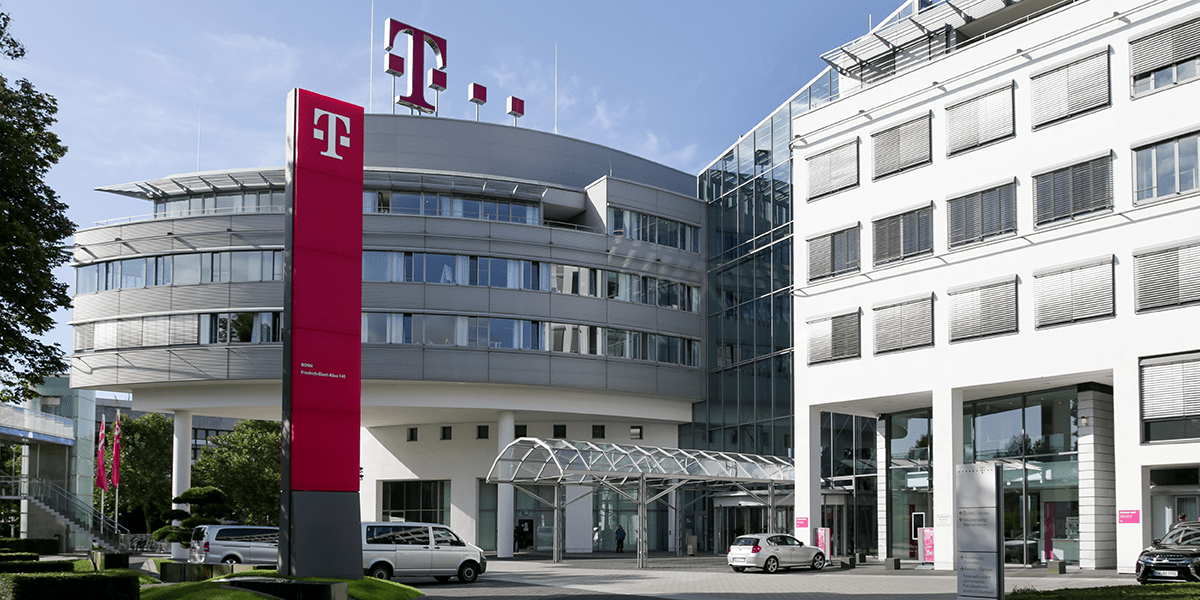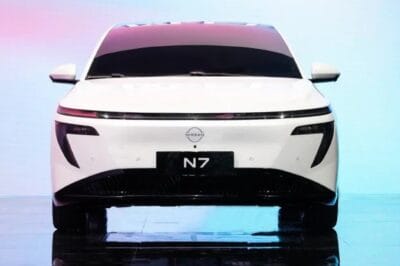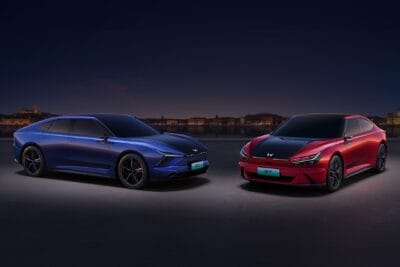Deutsche Telekom to buy 100% electric company cars from 2023
A huge change is underway as Germany’s largest telecommunications company, Deutsche Telekom, has announced to buy only electric company cars from 1 January 2023. Staff in Germany will have a choice between 33 EV models. The move is part of the Group’s broader sustainability initiatives.
Deutsche Telekom announced the phase-out of the combustion engine in new company cars on Thursday at its first Sustainability Day. A spokesperson stressed that “the phase-out relates to a part of the vehicle fleet, namely the company cars,” and not, for example, the service vehicles. Still, the transition will be relatively rapid since the new procurement rule will apply in Germany from the turn of the year. It is intended to be “a first step toward converting the entire vehicle fleet to electric motors,” as Telekom states.
This could have a sizeable impact. According to Telekom Mobility Solutions (TMS), a wholly owned subsidiary responsible for the vehicle fleet, the Telekom fleet comprises 23,000 company cars and service vehicles, making it one of the largest company fleets in Germany. Olga Nevska, TMS Managing Director, describes the phasing out of internal combustion engines on her LinkedIn profile as an “important milestone on the way to sustainable, connected and demand-driven employee mobility.” With 33 pure EV models in the portfolio, she says there is something to suit everyone.
Of course, the current long delivery times also affect Telekom. Just over a month ago, Nevska complained to the Handelsblatt about it. “In the process, the equipment is sometimes still changed by the manufacturer. That makes the person placing the order dissatisfied and makes our work more difficult,” she said. Telekom waited for 550 electric cars at the time, most scheduled to arrive in spring 2023, according to the German newspaper.
Independently of this, Telekom has synched the switch to fully electric vehicles with an extension of the service life of company vehicles from three to four years. This, too, is “with a view to sustainability.” In principle, the CO2 emissions of Deutsche Telekom’s business vehicles in Germany were around 21,400 tons at the end of 2021. Electrification is expected to reduce emissions by 76 per cent to about 5,000 tons of CO2 by the end of 2026, so Telekom.
According to its managing director, TMS is turning from a fleet into a mobility provider. In this respect, electrification is just one of several transformation processes under the slogan of operational mobility. “We take our responsibility as an employer very seriously and have been working for years to offer our employees sustainable mobility that meets their needs. The switch from combustion engines to electric motors plays a central role. At the same time, we are developing attractive offers that will reduce commuting on our roads and enable a convenient switch to the public, shared forms of mobility,” Nevska said.
So, in addition to procuring and operating classic company cars or service vehicles, TMS is involved in sharing concepts and on-demand solutions. The company website informs that the company operates a car-sharing fleet, 8,000 salary conversion bicycles, an on-demand shuttle service for around 120,000 people a year, and micro-mobility offerings in the form of pool bikes, scooters and more.
The company’s mobility network shall tighten. “For those who want to do without their company vehicle altogether, our MaaS platform will soon be launched, which bundles a wide variety of means of transport in one app and makes it easier for all commuters to switch to the public, shared forms of mobility,” the TMS boss announces. According to her data, 60 per cent of all employees still come to work in their cars. A figure that is expected to fall further.
Incidentally, Deutsche Telekom offers replacement mobility for the new electric company cars. This means that employees can “borrow” a combustion engine if necessary. According to Nevska, car subscription models are also becoming increasingly popular within the Group. These allow customers to switch to the vehicle type that suits their current situation. As early as spring 2022, 40% of new orders would be for electric vehicles in this way, the CEO told us in an earlier interview.
At the same time, the business customer division T-Systems takes a pioneering role in the Group. It started converting its business fleet worldwide to electric drives earlier this year. Telekom’s international IT subsidiary plans to complete the project for the 1,400 company cars in Germany by 2025.
As a Group, Deutsche Telekom aims to be climate-neutral along the entire value chain (“Scope 3″) by 2040. For business operations, this target applies as early as 2025 (“Scope 1-2”). To achieve this, CO2 emissions must be reduced by around 95 per cent compared to 2017.
“Our customers, but also our investors, consider it important that our company grows sustainably,” said Telekom CEO Tim Höttge. “It is not only the price of the products that interest them but also the price paid by the environment. That is why we are redoubling our efforts, for example, to achieve climate neutrality and a circular economy.”
>> Reporting by Cora Werwitzke, Germany.





0 Comments